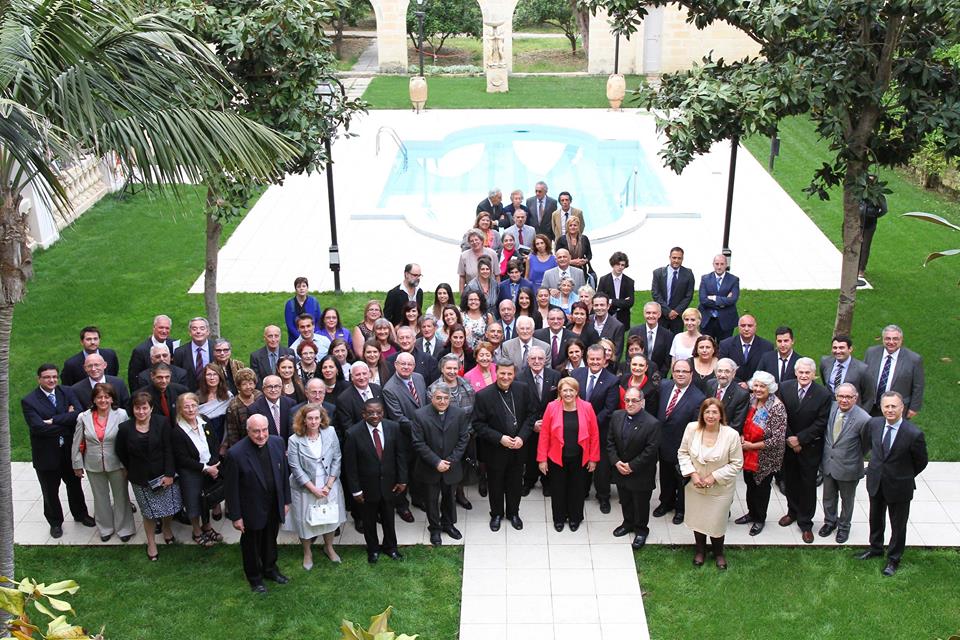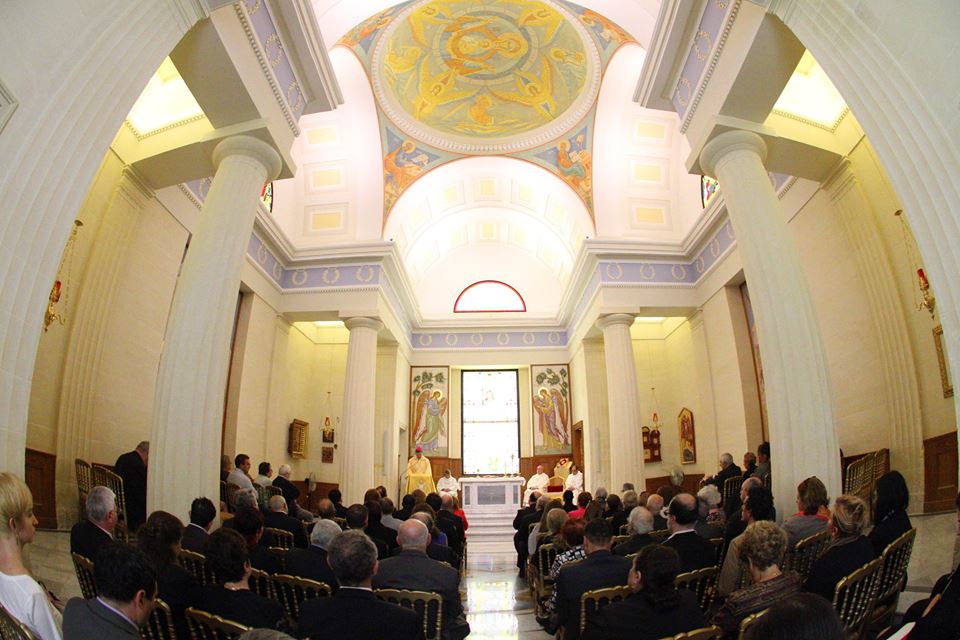Message by H.L. Bishop Mario Grech
20 April 2015
MALTESE EMIGRANTS: AMBASSADORS OF RARE HUMANITY
Dear brothers and sisters,
The occasion that bring us here together in this Eucharistic sacrifice reminds me of the words of Psalm 133: “Behold, how good and how pleasant it is for brothers to dwell together in unity!” (Ps 133,1). As we reflect upon the new perspectives and challenges of the Maltese communities around the globe, faith enlightens us about the roots of our identity as human beings: before belonging to a particular community or nation, we are all children of the One and True God. We all belong to the same human family. And in this sense, while geographically we may be distant from our native country, spiritually we are always at home as long as God dwells in our hearts.
In such a convention, I presume that the particular aspects that distinguish a nation’s culture are highlighted in order to better address the issues at stake as regards strengthening the links with Maltese abroad and also value the richness of our culture. Surely we ponder about what are those characteristics that qualify our definition of what it means to be “Maltese”. Moreover, this Convention is reflecting on how to pass to the younger generations of Maltese emigrants those values that are usually attributed to the Maltese-type: solidarity, prudence, hard-working…
I am not competent to talk about the new strategies that need to be adopted, but as we find ourselves reflecting in the presence of Our Lord Jesus Christ, I share with you a reflection on how faith can help us to address such new perspectives.
The novelties inherent to Maltese emigration nowadays form part of a wider context which we call globalisation: the world has become “smaller” and distances have been shortened. It should follow naturally that peoples and nations are getting closer. However we are living ever more the reality of what Pope Francis calls the globalisation of indifference. His Predecessor, Pope Benedict XVI, had noted that “as society becomes ever more globalized, it makes us neighbours but does not make us brothers” (Caritas in veritate, 19). Also on our islands, as we experience the influx of migrants, there is a risk to fall prey to a culture of suspicion towards the “stranger” that only serves to inflate our fear of the other. In all parts of the world, the proximity of peoples coming from diverse cultural backgrounds poses a challenge where a choice must be taken whether to weave the threads of human fraternity and communion or locking ourselves in small identity-ghettos. As world-known sociologist Zymung Bauman (1925-) says, we may suffer from a mixphobia, a fear to get to know one another that leads to create compact homogenous groups. The building of gated-communities is the very antithesis of community-building since it only encourages individuals to protect themselves from everybody by isolating themselves and avoid the challenge to encounter the stranger and tackle their fears.
In this historic moment, the principle that faith provides us is that of fraternal charity which originates from God the Father who loved us first and is taught to us through His Son and Our Lord Jesus Christ. After all, bringing out the best of the Maltese character abroad means rejuvenating that dynamic force that make the Maltese man and woman an honest, brave, and humane person, and assures that Malta continues to be the place of that rare humanity shown to the Apostle Paul by our forefathers. This dynamic force is the Gospel of Jesus Christ. As Pope Francis says, “Whenever we make the effort to return to the source and to recover the original freshness of the Gospel, new avenues arise, new paths of creativity open up, with different forms of expression, more eloquent signs and words with new meaning for today’s world.” (Evangelii gaudium, 11).
So, for all those who are disciples of Christ, our mission in today’s globalized world is to be an active force in the building and promotion of human solidarity. If we want to pass on the “values” that we cherish, then they should be the same that guide our daily thoughts and actions. Values, also the values of a determined culture, are always values that are cherished and lived by concrete individuals. If we want to pass these values, we need to lead by example.
The values that usually are linked to a civilized, democratic and progressive society could remain such as long as they remain rooted in the force that inspired them. Otherwise they become abstract concepts and empty clichés! French philosopher Jacques Maritain in an Address on Christianity and Democracy in 1949, – paraphrasing another philosopher Henri Bergson – stated that “the democratic sense or feeling is, by its very nature, an evangelical sense or feeling, its motive power is love, the essential thing in it is fraternity, it has its real sources in Gospel Inspiration.” It follows that “the ways in which Christianly-minded citizens can work at the task of Christianizing the world are […] a temporal testimony to the Gospel spirit in human affairs, I mean an effort to make social justice, freedom and responsibility in everyday life, and all that favours the ends of human personality, shape and animate the structures of terrestrial existence.”
With our mind set on the phenomenon of emigration, we cannot overlook the tragic story which is continuously unfolding in our Mediteranian basin involving thousands of persons emigrating from the African countries to escape poverty and violence. Unfortunatley many who dare to take dangerous journeys in their search for better opportunities in life, fall prey to human trafficking. Here the emigrants encounter persons who promise liberty but instead the latter unscupolously exert violence on them, misappropriate their little savings and even drown them at sea. The situation of these emigrants is beyond inhumane and demands an urgent political and humanitarian intervention. The more the international community continues to defer an effective political action, the more it will have to answer to this crime against humanity.
Dear brothers and sisters, in today’s Gospel we see Jesus that invites his followers to work not “for the food that perishes but for the food that endures for eternal life, which the Son of Man will give you” (Jn 6,27). May the Risen Lord enlighten us so as we may strengthen our faith in Him and thus be able to share with our younger generations, to our communities abroad, and to all our human brothers and sisters the “Gospel Inspiration”, the “food that endures for eternal life”. For us Christian then, these new perspectives offer us the occasion for a personal renewal of faith and an opportunity for a new evangelization. May we reply with generosity to this call and thus give praise to Our Lord Jesus Christ. Amen.



